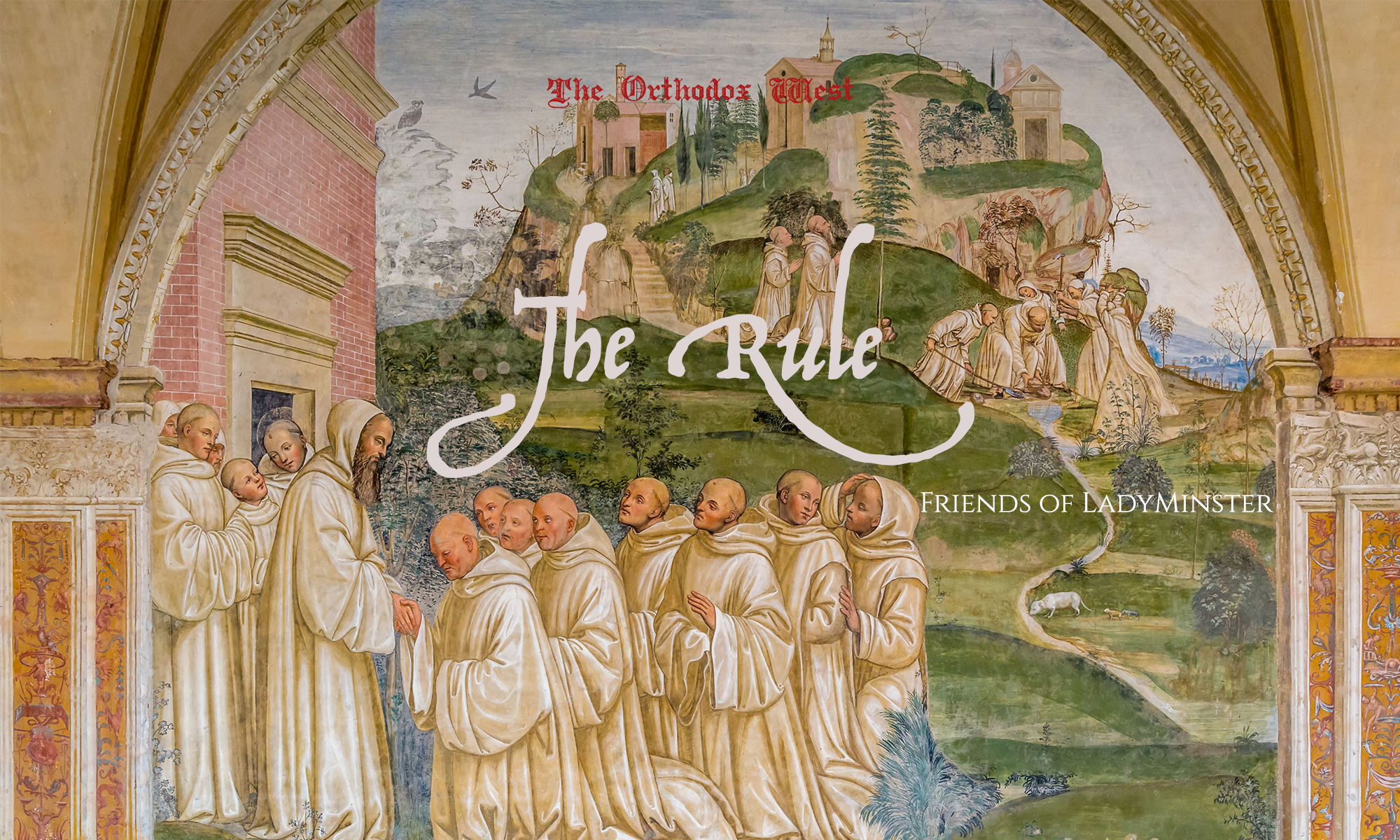
And when [Jesus] was accused of the chief priests and elders, he answered nothing. (Matt. 27)
St. Matthew portrays the Word as silent in the face of the religious authorities of Israel. He does not defend himself, but rather stands, with quiet dignity, before those who have hardened their hearts against him and would condemn him, no matter what he might say. Behold, then, the humility of God! A humility that allows the Truth to be silent because it is not welcome. Shortly after this, Jesus does speak a single sentence to Pilate, in answer to the question, “Art thou the King of the Jews?” Truth will not lie or dissemble, and in other Gospels, the Lord does speak when asked questions. But St. Matthew is likely trying to make a point about the close relationship between truth and humility. St. Gregory the Great wrote that, “Truth flies from the mind which it does not find humble.” He who is Truth itself cannot be other than humble, even in the face of one friend’s betrayal; of cowardice on the part of his closest disciple; of envy and calumny from those who were entrusted with guardianship of truth; and blatant injustice on the part of civil authorities who recognized the ill-will behind trumped-up charges but who gave in to “keep the peace.”
What claim have we to disregard the teaching of Truth who lived what he taught? “Ye have heard that it hath been said, An eye for an eye, and a tooth for a tooth: but I say unto you, That ye resist not evil: but whosoever shall smite thee on thy right cheek, turn to him the other also” (Matt. 5:38-39). A hard saying, indeed; one at which we no doubt fail, repeatedly. But this does not excuse us from hearing and doing what Truth, himself, told us: “Ye are my friends if ye do whatsoever I command you” (Jn 15:14). In this spirit, the Apostle also admonishes us, “But be ye doers of the word, and not hearers only, deceiving yourselves” (Jas 1:22).
As we ponder the silence of the Word, and as we listen to those few, brief words he did choose to say to his various accusers and judges, let us meditate on our own need to discern “a time to keep silence, and a time to speak” (Eccl. 3:7). Not all things said to us in anger or ill-will require a verbal response. Disputes, especially about God’s Truth, are often counterproductive and serve only to excite the passions and harden our hearts. In our fractured society, let us remember that Truth is a blessing to share, not a weapon to wield; and in our own lives, let us recall that it is better to suffer for righteousness’ sake than to crush another person made in the image of God – no matter how well disguised.
Abbot Theodore
